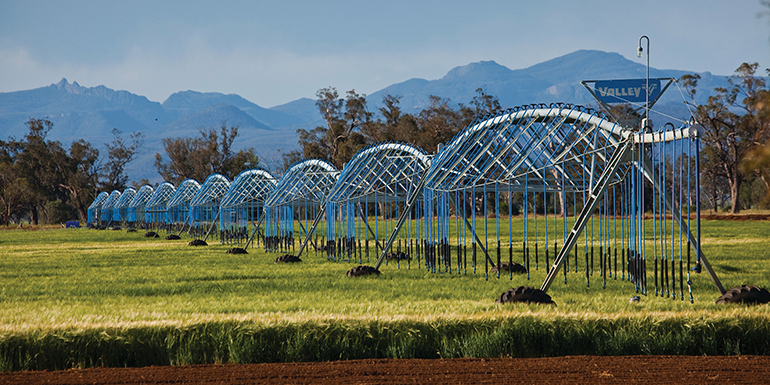Key points
- The impacts of climate change need to be considered by NSW state government agencies for state-level planning, and policies.
- Agencies need to critically assess and plan to avoid costly damages to property, infrastructure, the environment, livelihoods, and the health and wellbeing of NSW people.
- NSW Government agencies need to consider climate risks in order to meet their obligations under existing and revised NSW Government policies. Climate risks such as drought, storms and flooding, heatwaves, sea level rise and bushfires may impact the ability of state government agencies to meet statutory mandates.
- NSW state government agencies can help build the state’s resilience by preparing for future disruptions from climate change. Agencies can lead the way by understanding the risks that climate change poses to their assets and services and taking action now to prepare for the future.
Impacts of climate change on NSW state government
Our climate in NSW is changing with extreme weather events becoming more frequent and intense, and long-term changes to weather patterns. These changes can make existing risks more severe and create new risks for state government agencies – as well as new opportunities.
Some of the major risks that climate change poses to state government agencies include damages to infrastructure, services and organisational objectives. For example:
- loss of public and private assets due to more extreme weather events such as bushfire, floods and storms
- reduced ability to manage and deliver essential services
- reduced investment in NSW government, industry and property
- impacts of climate extremes on vulnerable citizens
- loss of productivity due to more extreme weather events such as bushfire, floods and storms
- extreme weather disrupting critical services, leading to financial losses to agencies, businesses and communities.
Climate change has the potential to impact how state government plans and delivers the critical services and infrastructure we depend upon. Policies and services need to be reviewed to consider climate risks to make sure they are effective under changing conditions.
How state government is affected by climate change
To better understand how climate change will affect state government agencies, each agency needs to consider:
- what the future might look like due to climate change
- how future climate conditions may impact on the agency’s objectives, services and assets
- how exposed or vulnerable the agency’s services, objectives and assets are to future climate conditions.
If no action is taken to reduce climate change, it is estimated that the Australian economy will be reduced by 6.3% by 2070, and lead to a net reduction of 880,000 jobs.
Modelling by a global group of 66 central banks, including the Reserve Bank of Australia, warns that global domestic product (GDP) could fall by 25% by 2100 if no action is taken to limit climate change.
For NSW state government agencies, some of the major climate change impacts to consider are:
Climate change is projected to increase drought conditions across NSW, making them longer and more severe. Drought affects state government agencies services, objectives and assets in a range of ways, such as:
- increasing pressure to balance the availability and needs for water by people, industries and the environment
- increasing pressure on healthcare systems to manage drought-related impacts to the health and wellbeing of people and communities
- economic and productivity losses in industries such as tourism and agriculture.
The NSW Government Rural Assistance Authority provides financial assistance to farmers and agricultural businesses in response to recent ongoing drought conditions. The cost of recent drought assistance has reached almost $1 billion (as at 2021).
Drought has also affected water security in metropolitan areas, which has resulted in economic impacts for state government agencies, including the requirement to build and maintain water infrastructure.
Climate change is projected to increase the severity of storms and floods in parts of NSW. Flooding impacts state government agencies in a range of ways, such as:
- causing direct and indirect damage to government infrastructure such as roads, dams, levees and buildings, as flood waters exceed the levels which infrastructure was originally designed to manage
- increasing costs of recovery with more frequent and more expensive relief payments to affected people, councils and businesses
- managing immediate and ongoing economic and productivity losses from affected businesses, services and infrastructure.
For example, in April 2015 a large storm struck metropolitan Sydney, the Hunter and Central Coast regions. Severe rainfall (hourly rainfall rates of between 100 and 150 mm at some locations) and cyclonic winds resulted in loss of life, flooding, major damage to over 250 houses, power outages and public transport delays.
Climate change is projected to increase temperatures across NSW. Combined with less frequent rainfall, these increasing temperatures will increase the risk of drought, bushfires and heatwave events. Increased temperatures can impact state government agencies in a range of ways, such as:
- causing outages and failures in critical services such as electricity delivery
- reducing the amenity of our urban environments such as tree and shade decline in parks
- increasing pressure on healthcare systems with higher rates of heat-related illness such as heatstroke.
The flow-on economic impacts of heatwaves can be just as severe. The 2013–14 heatwaves in Australia are estimated to have cost around $8 billion through workplace absenteeism and a reduction in work productivity.
Climate change is projected to increase the risk of bushfire events across NSW. This will impact state government agencies in a range of ways, such as:
- direct damage and loss of infrastructure
- immediate and flow-on economic losses related to tourism, agricultural and business productivity and financial hardship of affected people
- increasing recovery costs through relief payments to affected people and businesses.
As at 30 June 2020, due to the 2019-2020 bushfires the state insurer iCare estimated that bushfire losses of agency property were valued at $508 million. The Insurance Council of Australia received over 288,100 claims from 2019–2021 extreme weather events, which included bushfires, with total estimated damages of over $5.19 billion.
Related information
NSW Government’s SEED portal
Internal Audit and Risk Management Policy for the NSW Government sector – NSW Treasury
Case studies

Learn how NARCliM climate projections are being used by various NSW sectors to understand and adapt to climate change.

Climate change creates a significant risk to infrastructure, people, and the economy. The impacts from climate change, including damaging weather events, has already cost the state an estimated $3.6 billion per year.

Monash University's Climate Change Communication Research Hub applied NARCliM regional climate projections to visualise the projected increase in average summer temperatures across Australia's local government areas.
